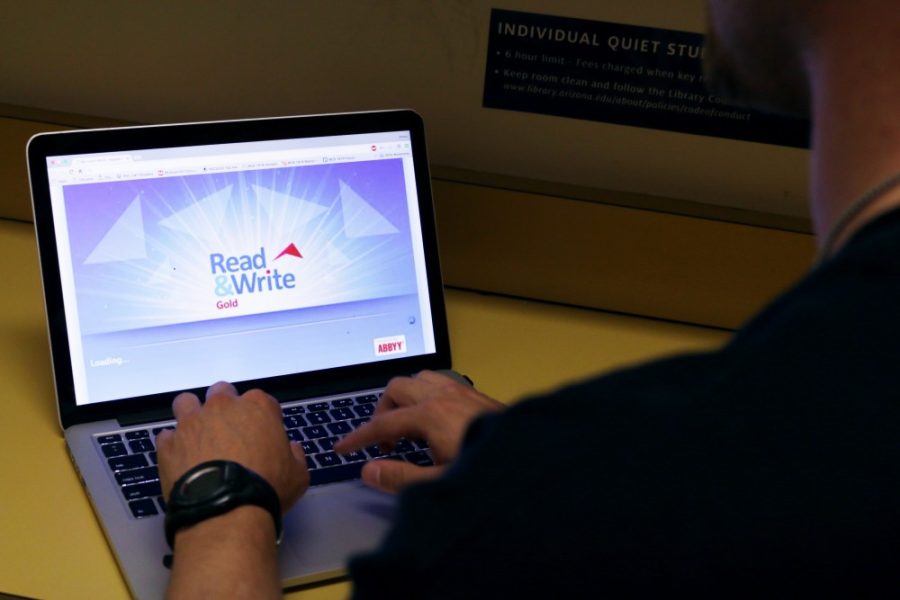New software that is free for students to download has made its way to the UA and will help make documents and files easily accessible. Read and Write Gold offers various tools to guide undergraduate and graduate students with their reading and writing materials.
The software has text-to-speech capabilities, voice recognition and can also be used as a research aid for students with disabilities or for those learning a second language.
Dawn Hunziker, the information technology accessibility consultant for the Disability Resource Center, received a grant for the UA to introduce the software.
“She mentioned it at a meeting and then I received an email from one of her listservs. I looked more into it and found that it’s very useful for anyone who is learning,” said Leslie Dupont, coordinator of the graduate writing program for the Writing Skills Improvement Program. “Read and Write Gold will definitely help with students who have accessibility issues.”
Dupont said she uses the software mostly with her multilingual students who are learning English as a second language. She said it’s a great way for them to learn proper pronunciation and the images provided next to the text aid in learning. She said it helps them while reading because it organizes the text in such a way that they aren’t overwhelmed by it.
Mary Beth Foster, educational technology coordinator for the SALT Center, said Read and Write Gold features a lot of tools students can use. For example, students have the option to choose from four different colored highlighters that color code their textbook readings and then collect the highlights and put them on a separate Microsoft Word document or PDF file.
“This is super convenient for students who want to make outlines or study guides,” Foster said. “The majority of students are visual learners, so Read and Write Gold has a tool for that too.”
A tool within the program, called Fact Mapper, acts like a mind-mapping tool that creates bubbles for individual thoughts the user has. If a student is using this tool as a tree diagram, they can create one large bubble as the main subject and then multiple sub-bubbles for key words or ideas. Once the student is done, the software converts his or her notes into an outline to visually organize the student’s thoughts.
“Read and Write Gold has two main options, text to speech and speech to text,” Foster said. “Text to speech is programmed so that the computer will read to you. The voices are updated so they don’t sound robotic but now they sound sophisticated and more human-sounding. It also highlights the words while it’s reading and allows students to adjust the speed for slow and fast readers.”
Foster said tracking the speed will allow students to be more focused, and if they want to hear it on the go, they can download the reading file as an MP3 file. She said if students are working out at the gym but have to read assignments or textbook pages, the software allows them to listen to their readings on their smartphones.
“It works on a PC where the computer goes into a training mode that you are able to speak into the computer and it does as you command,” Fpster said. “It recognizes your speech patterns so it can mimic your voice and talk out ideas while typing at the same time.”
Students can also train the computer by reading passages while the computer listens and captures the pronunciations.
Foster said she created tutorial videos on how to use the tools. She encourages students to install the software. The SALT Center will work with students one-on-one to make sure they are getting the experiences they deserve.
Follow Gabriella Vukelic on Twitter.









